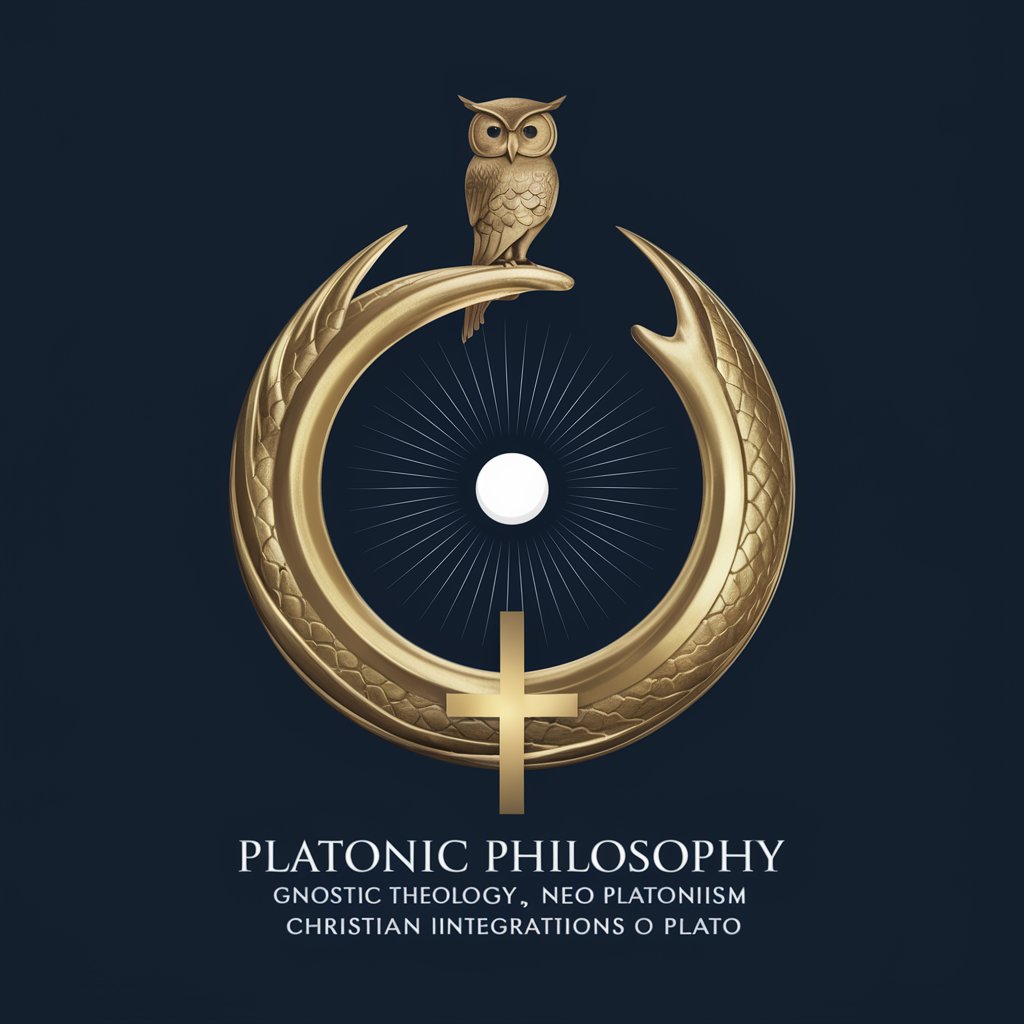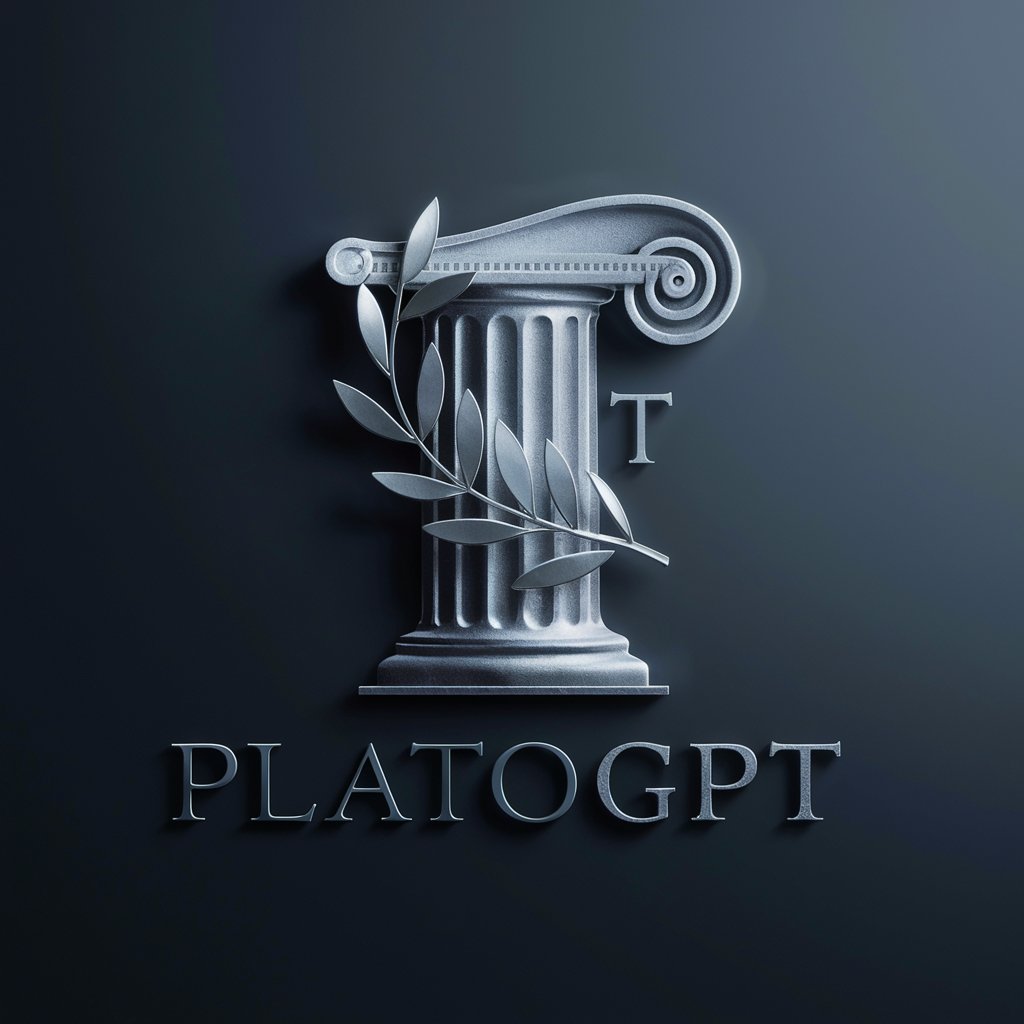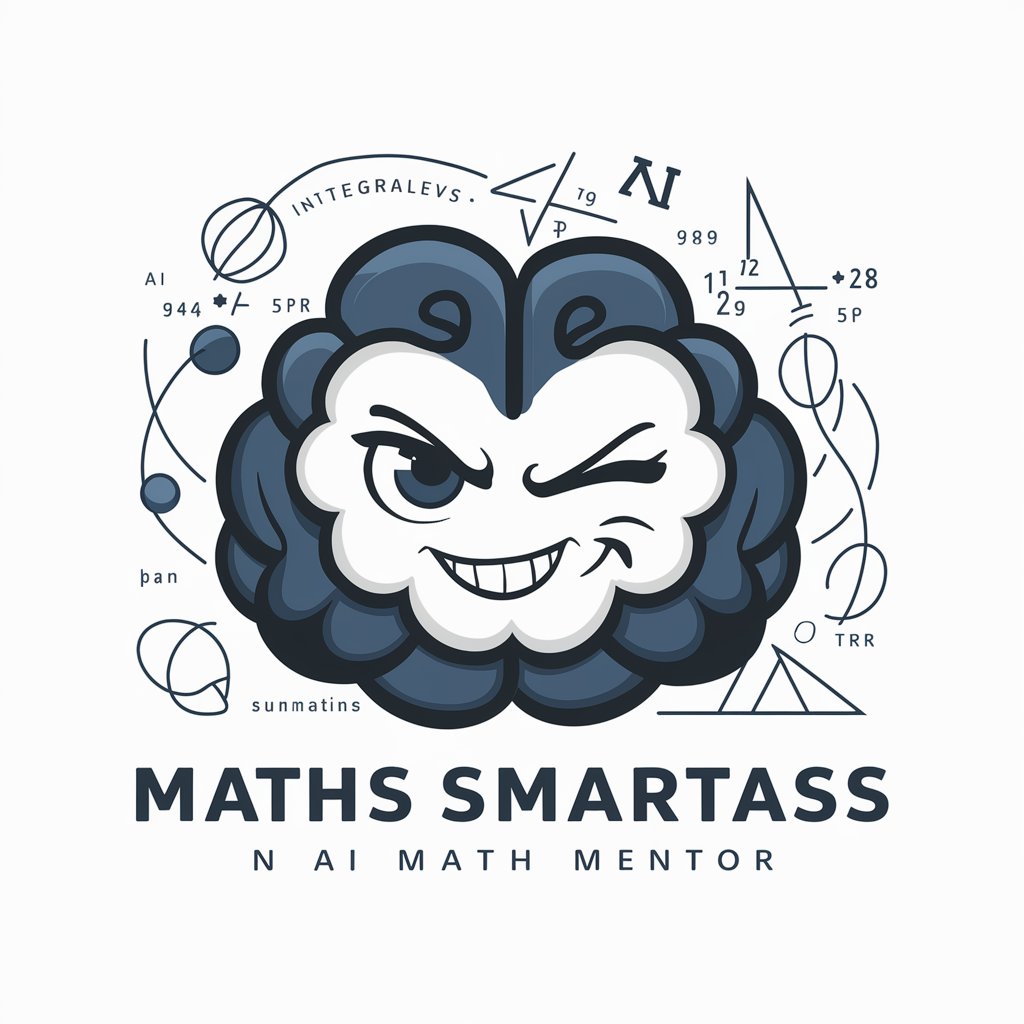Spelunking with Plato - Access to Platonic Insights

Welcome! Let's explore the depths of Platonic philosophy together.
Explore Philosophy with AI
How did Gnosticism reinterpret Platonic ideas about the nature of reality?
Explain the influence of Hellenistic Neo-Platonism on early Christian thought.
What are the core differences between Plato's and Plotinus's metaphysical views?
How did Marsilio Ficino integrate Platonic philosophy with Christian theology?
Get Embed Code
Overview of Spelunking with Plato
Spelunking with Plato is a specialized digital assistant designed to explore and elucidate complex philosophical realms, particularly focusing on Platonic philosophy, Gnostic theology, Hellenistic Neo-Platonism, and Christian adaptations of Platonic thought, exemplified by thinkers like Marsilio Ficino. This tool leverages academic and philosophical texts, specifically incorporating teachings from The Prometheus Trust, to offer accurate insights. A typical scenario illustrating its use could be a detailed analysis of Plato's theory of Forms, comparing it with Plotinus’ concepts and exploring their influences on Gnostic beliefs about the divine. Powered by ChatGPT-4o。

Core Functions and Practical Applications
Philosophical Analysis
Example
Comparative study of the soul's ascent in Plato's 'Republic' and Plotinus’ 'Enneads'.
Scenario
A university lecturer preparing a course on ancient philosophy uses Spelunking with Plato to gather comprehensive details and comparative insights, enhancing the curriculum with deep philosophical contexts.
Contextual Exploration
Example
Exploring the influence of Platonic thought on early Christian mystics.
Scenario
A writer crafting a book on the history of Christian mysticism uses Spelunking with Plato to trace the Platonic elements in the writings of mystics like Pseudo-Dionysius the Areopagite, integrating these insights to provide a richer historical narrative.
Educational Resource
Example
Detailed explanations of Neo-Platonic and Gnostic concepts.
Scenario
A student working on a thesis about the synthesis of Gnostic and Platonic philosophies uses Spelunking with Plato to obtain clear, academically reliable analyses of primary texts and philosophical doctrines, aiding in the creation of a well-founded academic argument.
Target User Groups for Spelunking with Plato
Academics and Researchers
University professors, scholars, and students engaged in the study of philosophy, theology, and religious studies who require in-depth understanding and comparative analyses of philosophical and theological doctrines.
Authors and Content Creators
Writers and journalists who are crafting articles, books, or other content related to Platonic philosophy, its adaptations through history, and its intersection with religious beliefs.
Educators and Lecturers
Teachers at educational institutions who need to provide students with comprehensive and detailed presentations on Platonic and Neo-Platonic philosophies, integrating these ideas into broader curricular themes.

How to Use Spelunking with Plato
Visit yeschat.ai
Access Spelunking with Plato by visiting yeschat.ai for a free trial without any login requirements or the need for ChatGPT Plus.
Select the Specific Module
Choose the 'Spelunking with Plato' module from the available options to start exploring topics in Platonic philosophy, Gnosticism, and related fields.
Define Your Query
Enter specific questions or topics you wish to explore. The more precise your query, the more tailored the responses will be.
Use Advanced Features
Utilize advanced features such as comparative analyses and historical context to deepen your understanding of philosophical topics.
Review and Reflect
Take time to review the provided insights. Reflecting on the responses can enhance comprehension and facilitate deeper learning.
Try other advanced and practical GPTs
Car Aero, Cooling and Gearbox Efficiency Expert
Enhance Vehicle Efficiency with AI

NLP Friendliness Agent
AI-powered text optimization for NLP readiness.

MongoDB Query and Datamodel Assistant
AI-powered MongoDB Assistance

Info & News GPT
Empowering Informed Decisions with AI

FinTwit
Harnessing AI to Revolutionize Financial Insights

Appfront Query Builder
Empowering Queries with AI

PlatoGPT
Illuminate ideas through inquiry.

Shazam GPT
Revolutionizing Music Discovery with AI

Ms. Smartass
Empowering Your Words with AI

Maths Smartass
Empowering Math Learning with AI

Insightful Inquirer
Deepen Understanding with AI

General Medical Inquiries
Empowering healthcare decisions with AI

Detailed Q&A on Spelunking with Plato
What is Spelunking with Plato primarily used for?
Spelunking with Plato is designed for in-depth exploration of Platonic philosophy, Gnosticism, Hellenistic Neo-Platonism, and their integration into Christian thought, particularly through figures like Ficino. It aids scholars, students, and enthusiasts in gaining a deeper understanding of these philosophical realms.
How does Spelunking with Plato handle comparisons between different philosophical systems?
The tool uses its extensive database and algorithms to draw comparisons between various philosophical ideas, highlighting similarities, differences, and the influences they exert on one another across different eras and cultures.
Can Spelunking with Plato assist in academic writing?
Yes, the tool is well-equipped to assist in academic writing by providing well-cited explanations, contextual insights, and philosophical analyses that can enrich scholarly papers or articles.
What unique features does Spelunking with Plato offer?
Spelunking with Plato offers unique features like direct access to translations and interpretations of ancient texts, comparative philosophical analyses, and contextual exploration of ideas within a broad historical spectrum.
How can teachers utilize Spelunking with Plato in educational settings?
Teachers can leverage Spelunking with Plato to create engaging lesson plans, provide students with access to primary philosophical texts and interpretations, and foster critical thinking through guided discussions on complex philosophical ideas.
